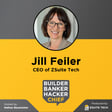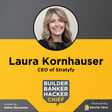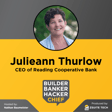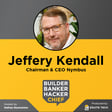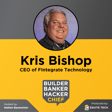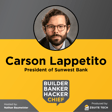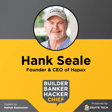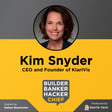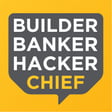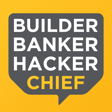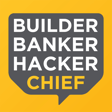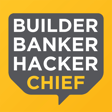
David Reiling – Surviving the bank robbery epidemic, the gift of respect, and finding a tribe that loves doing good. | Episode 17
Welcome to episode seventeen of Builder, Banker, Hacker, Chief! Joining me today is David Reiling, Chairman and CEO of Sunrise Banks.
On this show, I’m unpacking the stories, decisions, and influences that make people successful leaders.
David may have worked in banking his entire life, but it wasn’t until he was running a bank of his own that he realized he is actually an entrepreneur who happens to enjoy banking. The thread becomes obvious when learn about his passion for creating win-win scenarios and going far outside the walls of the bank to serve his client.
My name is Nathan Baumeister; I am the Co-founder and CEO of ZSuite Tech and the host of this podcast.
A self-described “shy, Catholic, military school kid from Minnesota,” David proved over and over that his willingness to work hard and think differently than his peers would help him achieve great things. He grew up in an ethnic Italian community, swinging a hammer for his uncle’s construction company and even witnessing a bank robbery one summer as a bank teller – that proved to be a formative experience.
After getting his college degree in sunny San Diego, David went to work as a banker in south-central LA and cut his teeth during the infamous bank robbery epidemic of the 1980s and 90s.
He also learned how to navigate the chaotic, diverse, urban core that was and is urban Los Angeles. Whether it was serving a grieving gang member with dignity and respect, or figuring out how to help Taiwanese businessmen spend quality time with their favorite pets, David saw the value in people, no matter their social status or net worth.
That theme continued to play out when he moved back to Minnesota to buy a troubled bank smack in the middle of an ethnic Hmong neighborhood.
That institution is now Sunrise Banks, a certified B-corporation, Community Development Financial Institution, and a beacon of financial support for people of all cultures and backgrounds.
David has so much wisdom to offer on leadership, finding your tribe, and building a mission-driven organization – this conversation is a rare gift. We’re proud to share it with our listeners.
Resources:
David’s recommendations:
Books:
The Psychology of Money: Timeless lessons on wealth, greed, and happiness
Younger Next Year: Live Strong, Fit, Sexy, and Smart – Until You’re 80 and Beyond
Connect:
